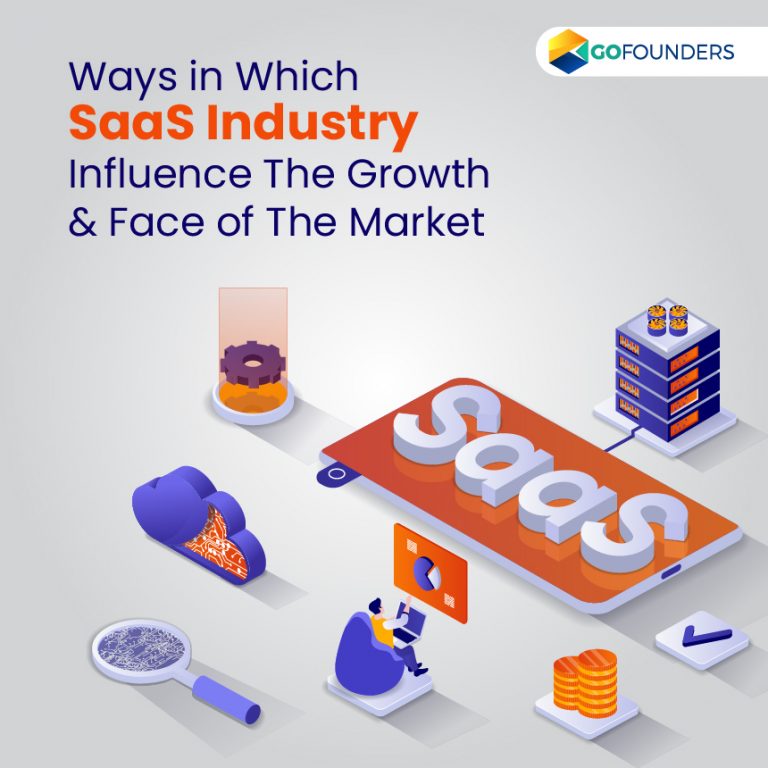
The software-as-a-service (SaaS) became quite popular when it first arrived in the market. However, its stability was questionable. Around that time, Cisco has anticipated that more than 83% of data centre traffic is going to be based in the cloud in the coming times.
Today, service providers need not spend their time convincing users about the benefits of SaaS. It is estimated that SaaS, with its horizontal solutions, is going to witness modest growth.
While no one can predict SaaS industry future while examining what will happen in dynamic market conditions, there are few aspects that will influence the growth and face of the market.
Flexibility with SaaS
Smartphones have revolutionized our lives today. We no longer use them just for calls or messaging. Around 43% of all business owners are dependable on their smartphones to manage their daily operations. Thus, the SaaS industry is inclined towards mobile-friendly solutions. However, it is not just limited to mobile apps but including any networked device, machinery or products. SaaS solutions, with their flexible integration capabilities, will connect people to solutions. Moreover, it will also incorporate connection for information kiosks in stores, sales displays and even products themselves.
It will go ahead with featuring mobility-first apps to enable business owners to conduct their business activities from their mobile devices or briefcases. Sales enablement, web engagement, marketing automation, helpdesk, telephony, email campaigns, mobile marketing and social media integration can all be managed from Android or iOS devices or tablets. SaaS solutions along with CRM offers streamlined mobile dashboards that allow its user to track and convert leads, thereby increase sales from any place, any moment.
Security
Earlier applications of SaaS would be limited to the kind of ease it offers and its affordability. Security features primarily would be assigned to premise-based solutions alone. However, cloud security is being improved, as the international laws that govern cybersecurity are now being framed, implemented and enforced.
SaaS developers today are executing security as code to track and identify security menaces, safeguard systems and help them revive from abnormal security mishaps.
In addition, cloud security comes with software-defined capabilities that make it easier to implement and more advanced than traditional on-premise systems.
Robust integration
Earlier, the SaaS industry would be exclusive, especially with regards to its horizontal solutions as they controlled closed platforms, which intercepted interoperability except with few selected partners.
Now there will be growing opportunities for more open platforms that can integrate with various complementary services in the coming times. It will be well customized with a simple blank browser, which can upload the exact software users want to work with.
This kind of integration strategies along with robust APIs connected to integration platforms, effortless authentication through a single sign-on, is going to be a significant breakthrough that can reshape the SaaS industry.
Artificial Intelligence (AI) capabilities
Predictive analytics enable by AI is enabling higher levels of automation within SaaS. With powerful AI capabilities, the SaaS based products will streamline the user process and enhance efficiency and accuracy.
For instance, in sales and marketing, managers and sales personnel will not be spending much time anticipating, curating and loading data while they can use their time optimally to offer their human capacities to sell and market.
Changing revenue models
Today revenue models have started to shift from simply blanket subscription fees or fixed software models to transaction-based models. For example, AWS, Zenefits, Gusto etc.
This model is going to support both solution providers as well as the smaller companies they serve.
Concluding Thoughts
The software-as-a-service or SaaS industry is undergoing massive shit to serve businesses of all sizes in a better way. However, small businesses are coming forward to invest in these solutions. It is even estimated that, about 85% of small businesses are willing to invest more in software in the coming five years that it offers an excellent opportunity for developers. In addition, cloud solutions have the potential to resolve operational issues of about 600 million small businesses across the globe.
Thus, the SaaS industry is here to rule businesses in the near future. It has great power to transform and reshape the businesses, if not resisted by traditional organizational culture (that often pose a challenge to innovation and change). However, with growing benefits, SaaS will soon surpass such challenges. Thus, head start your entrepreneurial journey with advanced and efficient business practices enabled by SaaS industry.


